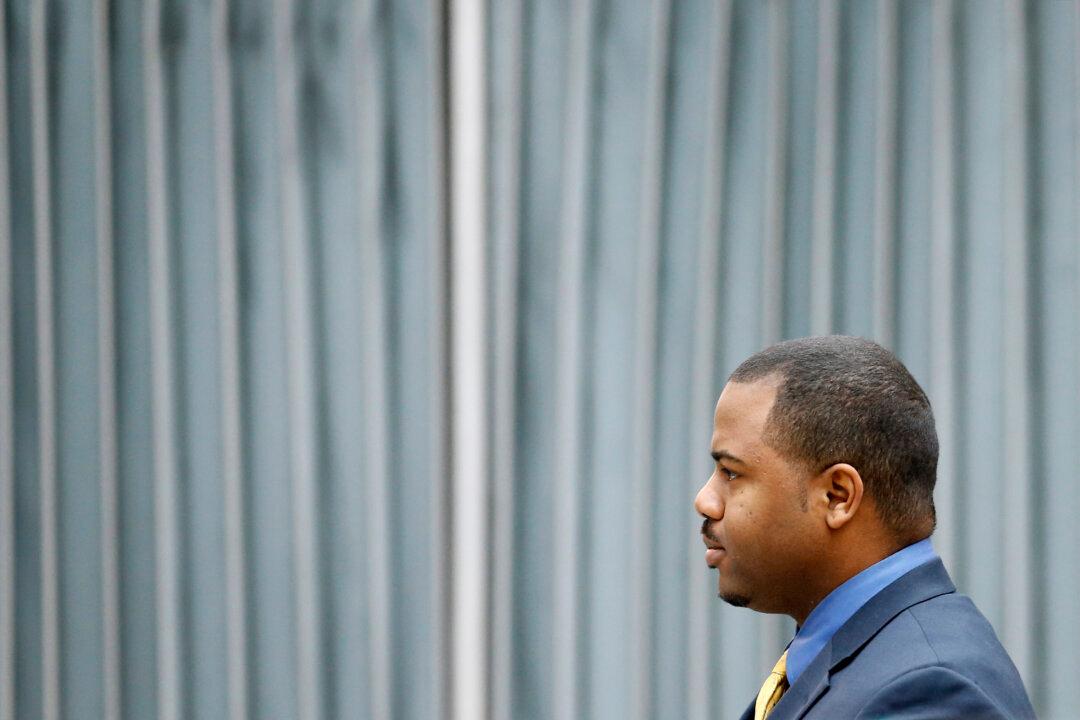BALTIMORE—Baltimore Police Officer William Porter is set to face a jury in the first trial stemming from the death of Freddie Gray, a young black man whose death from injuries he suffered in police custody triggered protests and rioting, and helped fuel the Black Lives Matter movement.
Twelve jurors and several alternates were to be seated Wednesday in Baltimore Circuit Court, following two days of preliminary screening, court spokeswoman Terri Charles said Tuesday. She said lawyers also may make opening statements Wednesday.
Porter, who is also black, is among six officers charged in the case. He faces charges of involuntary manslaughter, second-degree assault, misconduct in office and reckless endangerment. Prosecutors say he failed to render aid to Gray, who repeatedly asked for medical attention. The charges carry maximum prison terms totaling about 25 years.
The jury selection process has been relatively brisk in light of defense assertions in pretrial proceedings that it would be impossible to seat an impartial panel. Judge Barry Williams has repeatedly denied defense motions to move the trial out of Baltimore.





